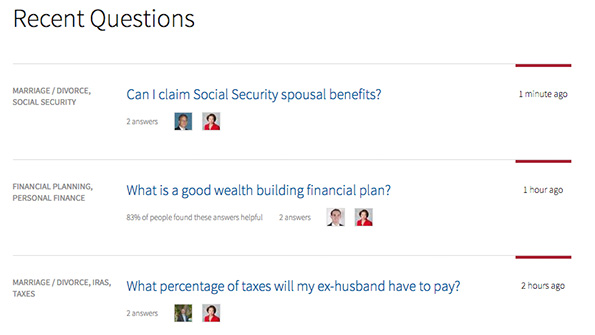 It's so hard to say goodbye. | Copyright Joe Raedle, Getty Images
It's so hard to say goodbye. | Copyright Joe Raedle, Getty Images
Emotions almost always come into play when making investment decisions. But what is more emotionally taxing, the decision to buy or to sell? By a wide margin, selling is more "painful" and emotionally costly than buying, according to a poll by the CFA Institute. A full 84 percent said selling, either outright (43 percent) or in a short-sale (41 percent), was the most difficult decision to make emotionally. Only 3 percent said buying, while 13 percent said buying on margin topped the list of emotional difficulty. "This result reflects our bias towards ownership, also known as the endowment effect. We tend to overvalue everything that is ours, from our thoughts to our investment assets - even if some of the things that we come to own are detestable," writes Shreenivas Kunte, the director of content for the CFA Institute.
People With Disabilities Make Great Advisors
 Listening is key.
Listening is key.
People with disabilities can be great listeners and have an easier time empathizing with others’ issues, said Joseph Mallee, CEO of MassMutual Eastern Pennsylvania, speaking recently on a panel assembled by The American College of Financial Services. “That's usually the recipe for being a great advisor,” he said. Yet the financial services industry is doing a poor job attracting people with disabilities to the profession, the panelists argued. The American College of Financial Services hosted the panel to mark the 26th anniversary of the Americans with Disabilities Act. The industry needs to step up its recruiting efforts of people with disabilities, panelists said. Other ways to make the profession more welcoming include creating marketing materials and internal tools that are more accessible and making it easier for people with disabilities to prepare for and take tests. Kane Brolin, one of the panelists and an advisor for Brolin Wealth Management, was born blind. "If you can sell and if you can empathize with people and tailor products and services to their needs and deal with folks on the ground in a way that makes them believe in you, you can be a financial planner."
Investopedia's Advice Hub Sees Strong Engagement
 2 million page views and counting.
2 million page views and counting.
Investopedia announced Tuesday that Advisor Insights, the digital advice hub it launched in March, has already exposed to financial advisors to 2 million page views thanks to more than 2,000 answers from advisors to investor questions. The company attributed the high engagement to a number of perks for advisors, including press opportunities, a professional-quality marketing video, a featured spot in Investopedia’s newsletter and geo-targeted display advertising. The company added that its significant reach - an estimated 23 million unique monthly users - also played a role in Advisor Insights’ rapid growth, with 75 percent of participating advisors receiving more than 1,000 page views in the last 60 days. “We wanted to create a product that was simultaneously beneficial to Investopedia's audience as well as financial advisors," Investopedia CEO David Siegel said. "In a rapidly changing landscape, it is crucial for financial advisors to find a way to stand out. We recognize that advisors face numerous challenges in light of growing robo advisory offerings and turbulent global markets.”

